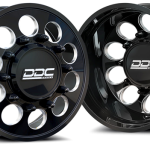Fuel tanks are essential to cars. It supplies engine gasoline from storage. A robust tank makes driving safe and smooth. The tank may deteriorate. Sometimes repair is enough. Sometimes replacement is the only safe option. Knowing when to replace is crucial. It provides vehicle protection and prevents costly troubles.
Severe Rust and Corrosion
Fuel tanks often rust. It begins as a surface spot. The depth impacts strength over time. Corrosion causes structural weakness and invisible defects. Clean and cure minor rust. Severely corroded tanks cannot hold fuel safely. Such repairs will not restore full strength. Replace the tank for complete safety. Fuel leaks and fires are prevented.
Large Cracks or Structural Damage
A fuel tank can crack from impact or ageing. Simple cracks can be sealed. They can be welded or sealed properly. Large cracks are distinct. A massive break undermines the tank. It impacts fuel and pressure retention. A patch won’t stop tension from spreading. The tank will likely fail again after brief use. Replacement is best and safest in such instances. It strengthens and protects the car.
Recurrent Repairs and Leaks
Some tanks still have issues after repairs. A leak may return after weeks. This makes the tank unreliable. Every repair stresses the material. Repairs eventually fail. This applies to frequently repaired tanks. Only a new tank will fix this. A new unit reduces risks and costs. It gives drivers comfort of mind. In these cases, many professionals at Auto Repair in Birdsboro, PA recommend full replacement.
Damage from accidents or severe impact
A major accident can completely distort the gasoline tank. Metal can bend or twist after impact. Even with fuel, the tank may be unsafe after the accident. Some walls may be thin and flimsy. Stress points might leak anytime. This tank cannot be repaired safely or effectively. A fresh tank is the only reliable solution after major damage. Alignment and leak-free performance are guaranteed. Never compromise safety in these situations.
Internal Contamination beyond Cleaning
Fuel tanks can accumulate grime over time. Sludge and water settle to the bottom. Cleaning helps most but not all. Heavy rust and filth build up within certain tanks. Strong cleaning cannot completely remove these layers. They will contaminate petrol and damage engines. Cleaning is only a short-term solution. Complete tank replacement assures clean gasoline. Engine protection and longevity are increased.
Conclusion
Fuel tanks are crucial to vehicle safety. It must always be sturdy and leak-free. Simple problems can be fixed quickly. Large cracks, rust, or leaks need more than repair. Accidental and extensive contamination damage requires replacement. Choosing wisely saves time and money. Also ensures road safety and efficiency. Inspecting regularly allows early detection. A mechanic you can trust can tell you what repairs or replacements you need. For the best results, pick parts that are of excellent quality and service that is good.

 The Truth About Bolt-On Dually Wheel Fitment
The Truth About Bolt-On Dually Wheel Fitment  Proven Tips for Buying Dually Wheels That Last
Proven Tips for Buying Dually Wheels That Last  Fuel-Efficient New Vehicles For Sale In Rochester
Fuel-Efficient New Vehicles For Sale In Rochester  Age and Wear: The Inevitable Deterioration of CV Components
Age and Wear: The Inevitable Deterioration of CV Components  Affordable Pre-Owned Toyota Tacoma Models Deliver Lasting Value for Buyers
Affordable Pre-Owned Toyota Tacoma Models Deliver Lasting Value for Buyers  When Does a Fuel Tank Need Replacement Instead of Repair?
When Does a Fuel Tank Need Replacement Instead of Repair?  Protect Your Tire Warranty with Regular Rotation Service
Protect Your Tire Warranty with Regular Rotation Service  The Hidden History of Singapore’s Automotive Afterlife: What Car Graveyards Reveal About Modern Nation-Building
The Hidden History of Singapore’s Automotive Afterlife: What Car Graveyards Reveal About Modern Nation-Building  Photography Tips to Capture the Best Moments of the Exotic Car Rally
Photography Tips to Capture the Best Moments of the Exotic Car Rally 